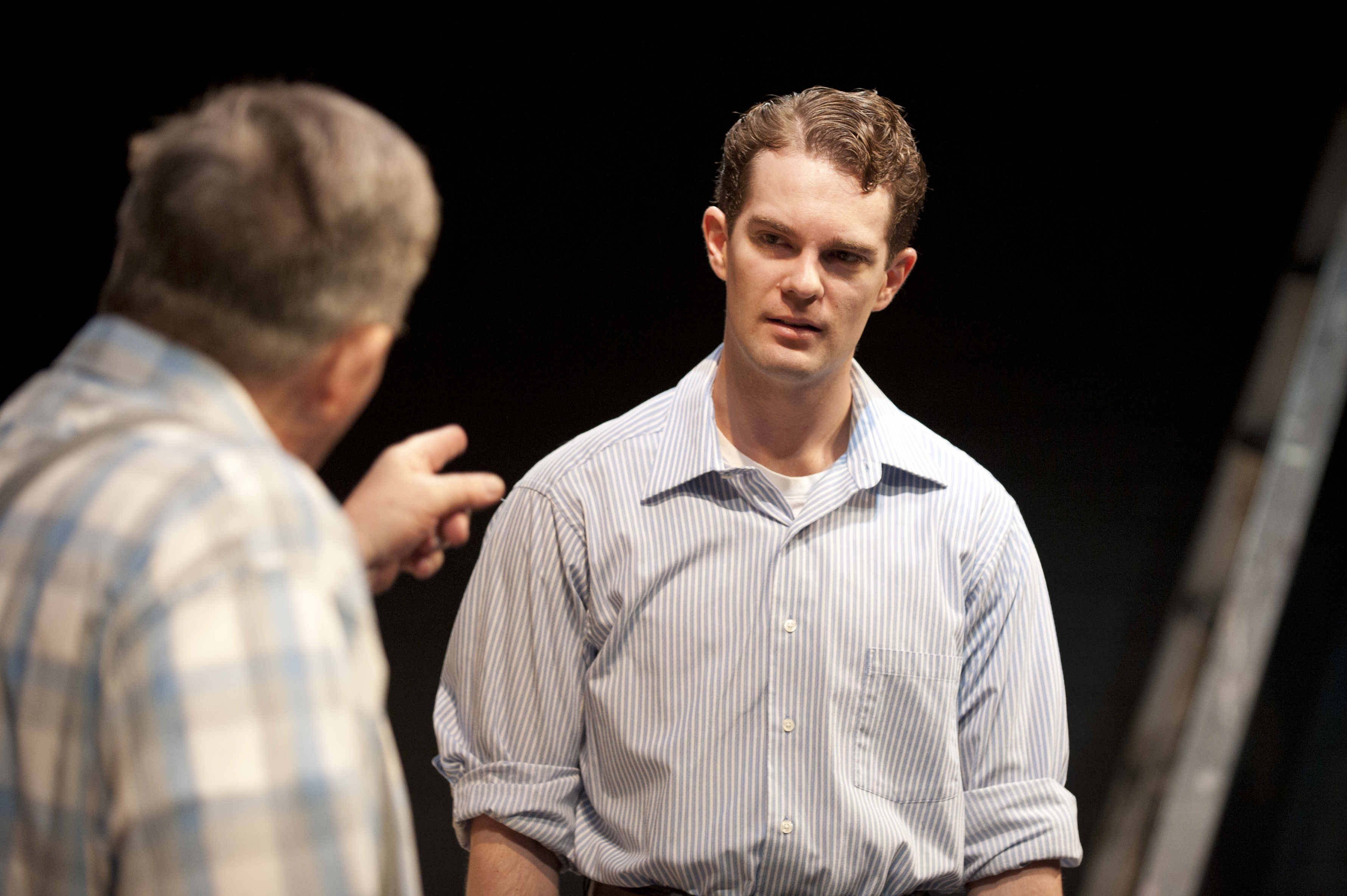SALT LAKE CITY — All My Sons was Arthur Miller’s first critically successful play, inspiration for which came from a story he found in a newspaper after World War II. Miller stated that this was his last attempt to try to make it as a playwright, before he gave up and moved on to a new profession. The theatre community at large should be very grateful that All My Sons became a success, and that Miller continued to write plays throughout his life.

The story centers around two days in in late August, 1947. Joe Keller, played by Peder Melhuse, is a man who loves his family and has built a great deal of wealth for them. However, within that wealth lies a scandal that briefly sent him and a former business partner to jail. Joe was exonerated, though questions remain that impugn his innocence. Joe and his wife Kate, played by Catherine Ostler Bearden, have two sons, Larry, who went missing in action in WWII, and Chris, played by Ryon J. Sharette. Chris is an idealistic young man, who is secretly haunted by the guilt that the money and business he will inherit may be tainted. Chris is also in love with and hopes to marry Ann Deever, played by Olvia Vessel. Ann dated Chris’s brother, Larry, before the war, and is the daughter of Joe’s business partner who is now in prison. Ann believes her father is guilty, and has not spoken to him since his conviction. As the story progresses, other minor characters help the story progress and bring out the ugly truth of what happened with Joe’s business, and how the actions that took place lead to the death of several soldiers flying airplanes in the war. At the heart of the story is the realization that one’s actions affect others because all of humanity is all interconnected.
The subject matter of this show is deep and in some ways difficult to watch, and even more so to perform. I was extremely impressed with the level of skill I witnessed from the University of Utah Theatre department, and how well the were able to tell such a difficult story. Jessie Harris’s set was a great aid to the actors and to me in dealing with this story. The set was a realistic recreation of a 1940’s home and yard, and I could tell that a great deal of time and effort had been put into making the set design as faithful to the time period as possible. I commend Jessie Harris for the way the set helped the audience travel into this family’s home and life.
Another aspect of the show that truly impressed me was the costumes. In the lobby were different drawings of costume concepts that I was then impressed to see brought to life on stage. As I checked the program, I became more impressed to realize that the credit for the costume design goes to the Costume Design I Class. I commend that class for the wonderful way they were able to capture the look and feel of the post world war II era, and I also commend the University of Utah Theatre Department for allowing the students the opportunity to design the costumes for the show.
I also want to mention Hugh Hanson‘s directing. Often directors try and make changes or look for ways to adjust classic plays, and sometimes these ideas are successful, but more often they cover the true meaning of the show. Hanson has put together a production that is simple yet profound, and allows the audience to understand that it is not just kings and queens and important people that effect humanity, but every average Joe, too.
As for the actors themselves, each had many successful moments. I was especially impressed by the dynamic between Joe and Kate, played by Melhuse and Ostler-Bearden. Each interaction was done well enough that it was easy to believe that this was a long time married couple who had suffered from tragic loss, public embarrassment, and continued to harbor each others secrets.
I also felt that the characters Chris and Anne, played by Sharette and Vessel, shared a great deal of chemistry. I really felt that Vessel was able to help the audience see the difficulty of letting go of her past love, struggling with the reality of truth, and moving on to the future in the scene where she helps Mrs. Keller face the truth of her lost son Larry. I was impressed by Sharette’s ability to deliver the realistic performance of a son discovering that his father is not everything he has always hoped and believed his father to be.
All My Sons is definitely a show that one watches to learn, grow, and spend an evening in introspection. I highly suggest that people take the time to see this wonderful production at the University of Utah’s Babcock Theatre. I am personally glad for the reminder of my own responsibility to humanity, and hope that I can remember what Joe realized at the end of the show, “Sure, he was my son. But I think to him they were all my sons. And I guess they were, I guess they were.”
[box type=”shadow”]All My Sons plays Tuesday through Sunday at 7:30 PM and Saturday and Sunday at 2 PM through April 22 at the Babcock Theater (300 S. 1400 E., Salt Lake City). Tickets are $10-18. For more information, visit www.theatre.utah.edu.[/box]

